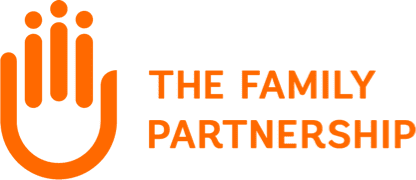Trinette Potts Leads New Expansion of EGG Toolkit in Minnesota Classrooms
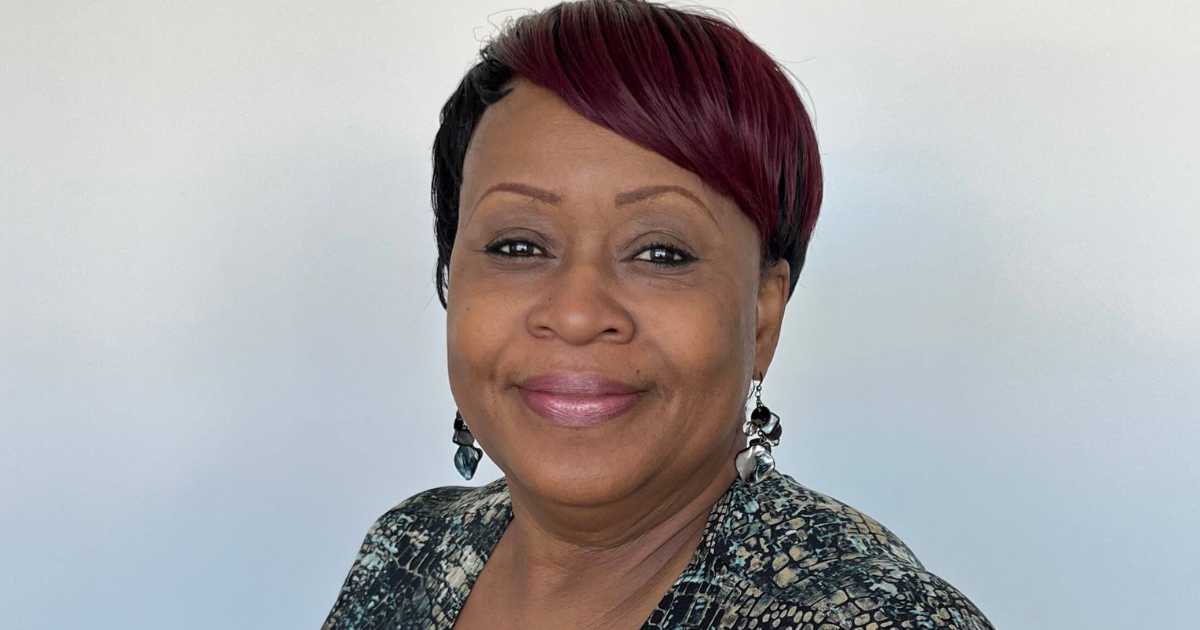
Trinette Potts, EGG Project Manager at The Family Partnership, is leading the 2024-25 pilot expansion of EGG Toolkit into preschool and Early Childhood Family Education (ECFE) sites across Minnesota. With over 24 years of experience in early childhood education, Potts is excited to bring this innovative curriculum to classrooms statewide, helping 3- to 5-year-old children build the executive functioning skills they need to succeed.

Trinette Potts, EGG Project Manager at The Family Partnership
“I’m passionate about this work because I’ve seen firsthand the impact EGG can have on kids and their teachers,” says Potts. “We’re dealing with a lot of dysregulation in classrooms, and this program provides the support both teachers and students need.”
Potts’ career began in direct care as the owner of a childcare business and grew into roles including director, business consultant, and professional development specialist. Her leadership in early childhood education is rooted in a deep understanding of the challenges teachers face daily. “We know teacher burnout is high right now,” she explains. “Many are leaving the field, and we want to give them tools to feel empowered in their classrooms.” Given her extensive experience in early childhood education, Potts is the perfect leader to oversee efforts to scale EGG Toolkit’s curriculum, training, and implementation in Minnesota.
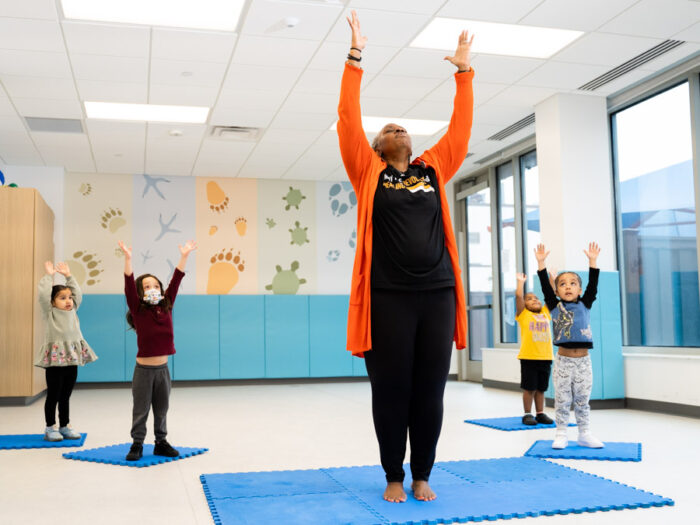
Mindfulness is one of the building blocks of executive functioning. Children use mindfulness skills to “re-set” and focus during stressful situations.
The history of hatching EGG
The Family Partnership designed EGG Toolkit (short for “Empowering Generational Greatness”) in 2017. The idea for EGG began when John Everett Till, Chief Operating Officer, learned that the earliest effects of childhood trauma manifest in the disruption of executive function development during the ages of 3 to 5 years.
According to Harvard Center for the Developing Child, “Executive function and self-regulation skills are the mental processes that enable us to plan, focus attention, remember instructions, and juggle multiple tasks successfully. The brain needs this skill set to filter distractions, prioritize tasks, set and achieve goals, and control impulses.” These early years are exactly the time when brain development is fastest and most foundational for building executive function and self-regulation skills and sets a foundation for children’s success in kindergarten and beyond.
John approached Christine Wing, CCC-SLP, PhD, about developing an early childhood intervention that could buffer children against the harmful effects of ACEs and boost kindergarten readiness. Together, John and Chris developed EGG in collaboration with early childhood educators and leading experts in brain science, child development, and curriculum design.
Today, EGG Toolkit is available in adaptations for preschools, home visiting programs and parenting groups. All variations focus on building executive function and self-regulation skills in children ages 3 to 5, with support from caregivers and educators. These skills are essential for academic success and overall well-being, as they help children manage their emotions, make healthy choices, and thrive in the classroom.
Developing an early childhood intervention for trauma
EGG is particularly effective in addressing challenges like Adverse Childhood Experiences (ACEs) by providing children with the language, storytelling, and mindfulness tools to navigate stress and trauma. These activities help foster a calmer, more focused learning environment, which in turn reduces behavioral disruptions and teacher burnout.
ACEs are traumatic events or experiences that occur in a child’s home or community. These can include abuse, neglect, and aspects of a child’s environment that impact their safety, stability, and sense of belonging. Family separation, racism, poverty, and community violence are also considered traumatic experiences.
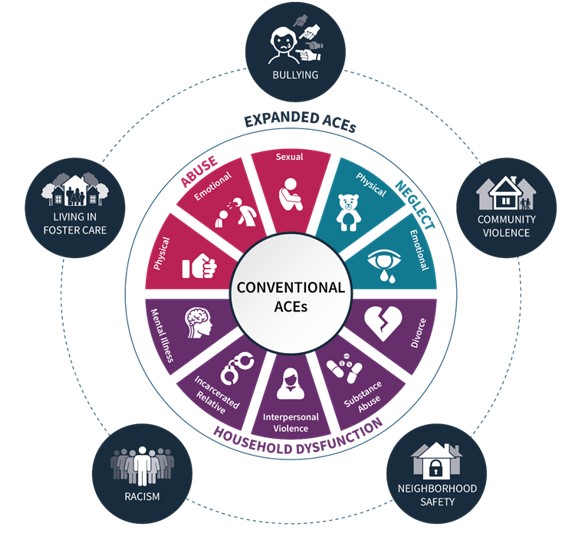
ACEs can include abuse, neglect and aspect’s of a child’s environment that impact their safety, stability, and sense of belonging. Graphic source: Minnesota Department of Health
ACEs are common. In fact, nearly one in two children (47%) in Minnesota report at least one ACE. However, research has shown that in Minnesota, American Indian and African American adults have three times the ACEs scores of their white peers. These early experiences of trauma and toxic stress impact a child’s developing brain and have lifelong consequences.
Research shows that the more ACEs a child experiences, the more likely they are to have negative outcomes in their lives including heart disease, diabetes, obesity, depression, substance abuse, and poor school performance. By building executive function and self-regulation skills, EGG Toolkit buffers against ACEs and supports healthier outcomes across a lifetime.
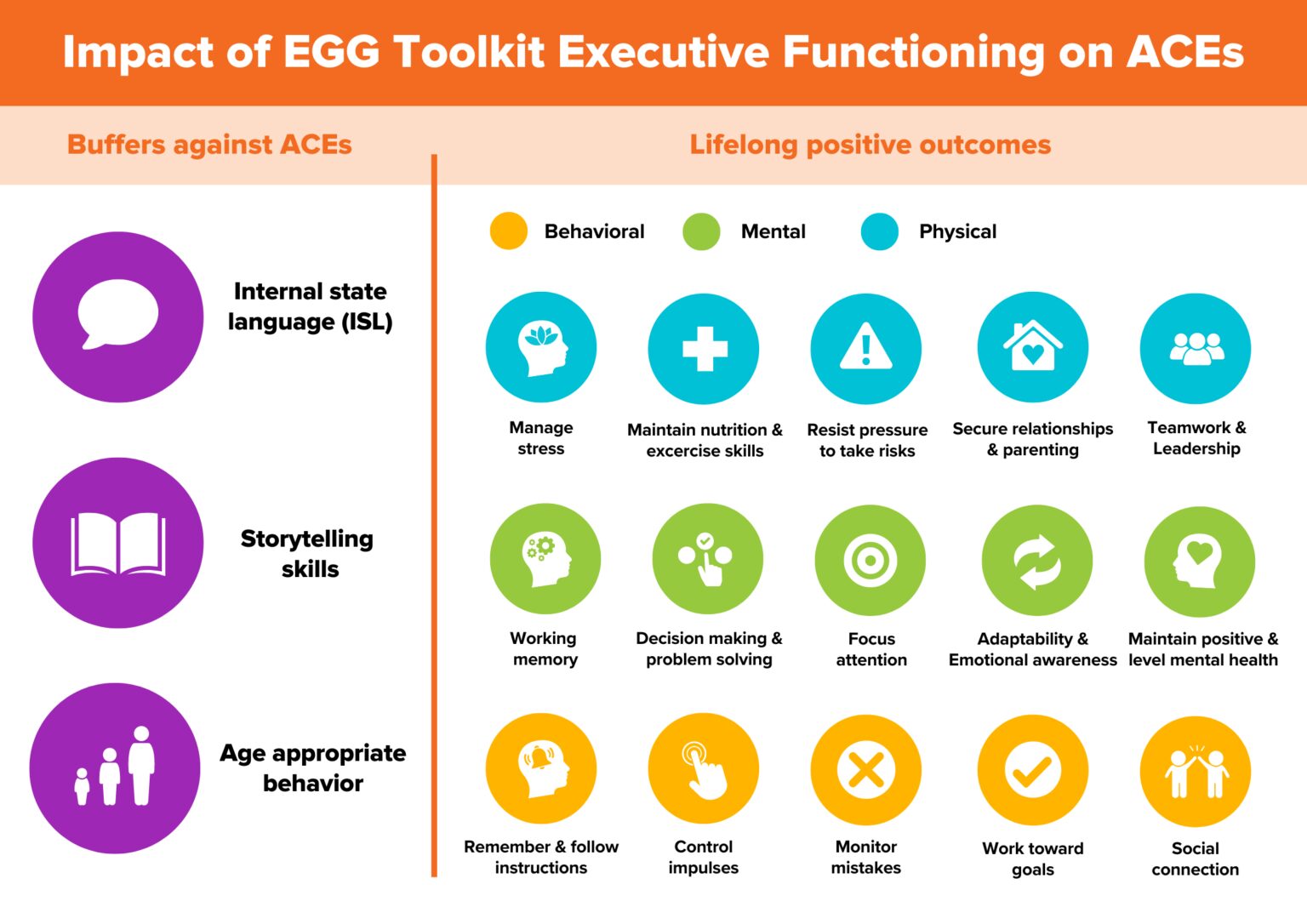
EGG helps to buffer children against the harmful impacts of ACEs, closing opportunity gaps in childhood and supporting a lifetime of better outcomes for physical, mental, and behavioral health. Graphic sourced from Center on the Developing Child – Harvard University
Creating a recipe for success in kindergarten—and beyond!
Opportunity gaps and disparities that result from inequity occur long before a child enters school. Early interventions like EGG help children develop essential skills for success in kindergarten, which predicts better outcomes throughout grade school and into their adult lives.
We’ve already seen amazing results from previous pilots. Kids who start below the national average in executive function are surpassing their peers after just a few sessions of EGG.
Trinette Potts, EGG Project Manager at The Family Partnership
“We’ve already seen amazing results from previous pilots,” Potts notes. “Kids who start below the national average in executive function are surpassing their peers after just a few sessions of EGG.”
EGG Toolkit addresses over half of preschool competency standards across multiple domains, supporting kindergarten readiness standards established by the state and assessments of a child’s total well-being and strengths. By building executive function and self-regulation skills, EGG helps children learn how to learn.
The benefits of EGG begin in the preschool classroom and they will continue as children grow up to become parents themselves. With greater capacities for resilience and focus, as well as language, storytelling, and mindfulness skills, parents can build more secure attachments. Their children also benefit from improved health, wellbeing, and prosperity.

Nurturing joy in preschool classrooms
The benefits of executive function and self-regulation skills begin in the preschool classroom, making EGG a critical support for educators in a challenging industry. Since COVID-19, Preschool administrators are seeing increased behavioral challenges and developmental delays that add to the stress of early childhood educators. According to a survey of early childhood educators in Minnesota by the National Association for the Education of Young Children (NAEYC) in the fall of 2022, 50.7% of respondents were experiencing staffing shortages. 74.7% of those surveyed were experiencing burnout and 35% were considering leaving the field.

“We know that right now in our field, there’s a lot of teacher burnout,” Potts said. “Teachers are leaving the field and there’s teacher turnover. We want teachers to be happy in the classroom.”
EGG Toolkit helps nurture joy in the classroom, because children have the skills they need to focus, plan, and regulate their emotions and behavior. As a result, they are better able to learn the material presented by their teachers and build positive relationships with their peers.
In just 30 minutes per day, evaluation from the University of Minnesota’s Center for Early Education and Development (CEED) showed that EGG Toolkit had positive impacts on age-appropriate classroom behavior. After using EGG, children increased age-appropriate classroom behavior by 7.4 points—a statistically significant change with a large effect size.
Preschool teachers reported that EGG also had a positive effect on their classrooms’ atmosphere. “I saw positive growth into putting names into emotions,” one teacher from San Antonio shared. “They don’t act out. They explain why they need space and are in tune with their feelings.”
By building focus and resilience, EGG supports positive learning environments for learners and educators.
We know that right now in our field, there’s a lot of teacher burnout. Teachers are leaving the field and there’s teacher turn over. We want teachers to be happy in the classroom.
Trinette Potts, EGG Project Manager at The Family Partnership
Promising results show the benefits of EGG Toolkit
Evaluation of our pilot programs shows that EGG Toolkit increases executive function skills, and these results are especially significant for children who have experienced household or systemic trauma. We have several years’ worth of data and outcomes, but these are some of the highlights from our research partners:
- The Center for Early Education and Development at the University of Minnesota found that EGG demonstrated a significant impact on emotional descriptive language, positive age-appropriate behavior, and personal narration—all highly correlated with executive function skills.
- Language sample analysis by Salt Software determined the complexity of children’s narratives increased after using the EGG toolkit.
- Results from the Minnesota Executive Functioning Scale app from Reflection Sciences showed that children who started below the age-adjusted median for executive function scored above the age-adjusted national median after using EGG.
Empowering Generational Greatness across Minnesota
Training for staff at our 2024-25 pilot sites has already begun. Preschools are expected to begin implementation this fall, and ECFE programs are slated for spring 2025. Based on our success in previous pilots, Potts is eager to see EGG reach more communities, knowing it has the potential to change the lives of children, families and educators.
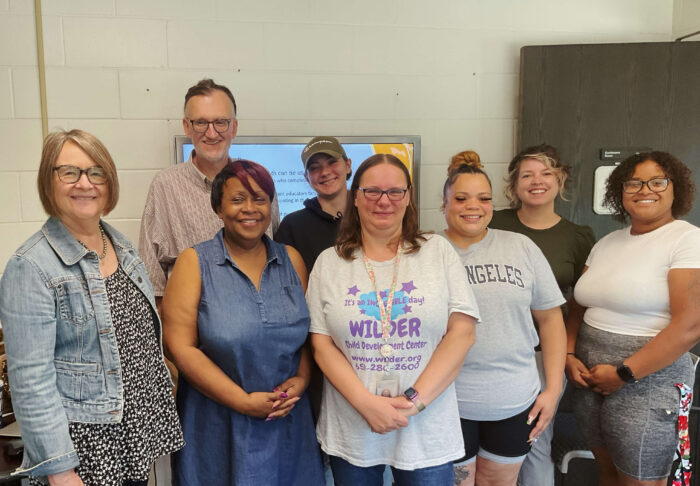
Trinette Potts, John Till and Chris Wing pause with staff from the Wilder Child Development Center during training in August 2024.
“This isn’t just about improving classroom behavior. EGG builds lifelong skills,” she says. “We’re also involving parents and caregivers in the process, so the benefits extend beyond the classroom.” According to Trinette, the importance of executive functioning is not known by many early childhood professionals, which is why she is so passionate about providing training to educators and staff. Participants in EGG Toolkit’s training will also receive credit that counts towards their development records and licensing requirements.
Potts said her favorite part of the training so far is witnessing the excitement of teachers. She said, “I love seeing the lightbulb moment for teachers. They get excited about the tools and how they can use them in their classrooms.”
One word that Potts uses often when discussing EGG Toolkit is “intentional.” The toolkit provides activities that help teachers, parents, and caregivers be more intentional in their interactions with children and that is why it works. For parents and caregivers participating in ECFE pilots, EGG Toolkit offers a 2Gen approach that builds awareness of executive functioning and skills the whole family can use.
Giving children and families the tools for executive functioning and self-regulation means giving them the skills to navigate the world. That changes the trajectories of families’ lives.
Trinette Potts, EGG Project Manager at The Family Partnership
By engaging parents and caregivers in the process, EGG Toolkit serves to strengthen bonds between family members—supporting a secure, loving environment for learning and growth. This is especially important for parents and caregivers who have ACEs themselves. Trinette said, “Giving children and families the tools for executive functioning and self-regulation means giving them the skills to navigate the world. That changes the trajectories of families’ lives.”
Visit www.eggtoolkit.com to sign up for our newsletter and learn more about how EGG builds lifelong focus and resilience in children 3-5 years old—and the adults who support their success!
